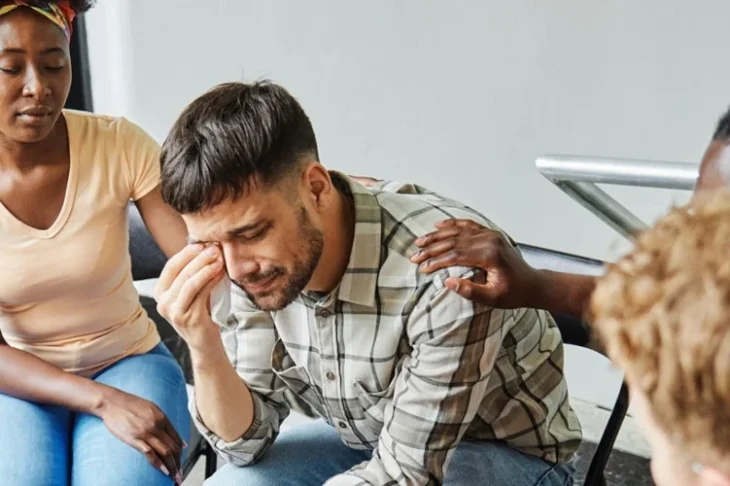
Recovery Is Still a Game of Luck for Too Many
If addiction is the great equaliser, touching every age, race, class, and background, then recovery should be too. But it isn’t. In theory, rehab is the bridge back to life. In reality, it’s a lottery. Who gets help, who stays sober, who gets another chance, too often depends on luck, where you live, what you earn, who you know, and whether your pain fits neatly into a system that was never built to hold everyone.
Recovery isn’t just a personal fight. It’s a structural one. And right now, the game is rigged.
The Myth of Equal Access
Ask most people about rehab, and they’ll imagine something clinical, professional, available, like any other medical service. But addiction treatment doesn’t work that way. In many places, there’s no clear path to help. The waiting lists are months long, the public beds are full, and the private centres cost more than most people make in a year.
If you have money, you can get help today. If you don’t, you’ll be told to “hold on”, an impossible ask for someone already on the edge. That’s not treatment. That’s triage by privilege. Addiction doesn’t discriminate, but recovery does.
The Price of Sobriety
Private rehabs justify their prices by offering exclusivity, comfort, and “world-class care.” But behind the wellness language is a brutal truth, healing has become a luxury product. For the wealthy, recovery looks like ocean views, gourmet meals, and one-on-one therapy. For everyone else, it’s underfunded detox wards, overworked staff, and two-week programmes that barely scratch the surface.
This divide doesn’t just separate people by income, it separates outcomes. A person with resources can relapse five times and still afford another stay. Someone without means gets one shot, if they’re lucky. In addiction, relapses are part of the process. In poverty, they’re often a death sentence.
The Geography of Hope
Where you live can decide whether you live. In urban areas, you might find a handful of treatment options, some good, some questionable. But in rural towns, options vanish completely. People drive hours for detox, or worse, give up.
Communities hardest hit by addiction, small towns, working-class suburbs, rural areas, often have the fewest recovery resources. It’s a cruel irony: the places that need help most are the ones least likely to have it. It shouldn’t take a relocation to save a life. But for many, it does.
The Lottery of Timing
Addiction is unpredictable, and so is help. When someone finally asks for it, timing is everything. The window between “I can’t do this anymore” and “I’ll just use one more time” can be hours. If treatment isn’t available right then, the opportunity disappears. A week later might be too late.
But that’s how the system works, waiting lists, assessments, bureaucracy. It’s a structure designed for paperwork, not crisis. You can die waiting for a bed that was promised. Many do.
The Stigma That Decides Who Deserves Help
Not everyone who seeks help is believed. Society still divides addicts into categories, the sympathetic and the self-inflicted. The “deserving” and the “lost cause.”
A young professional struggling with painkillers might get empathy and intervention. A homeless man found with the same addiction might get handcuffs. We’ve built a moral hierarchy of suffering, and it decides who gets to recover with dignity.
Addiction isn’t a crime, but stigma keeps punishing people as if it were.
The Broken Chain of Care
Even when someone gets into rehab, the journey doesn’t end there. For many, it barely begins. Rehab without aftercare is like surgery without recovery time. People leave treatment motivated but unprepared. They go home to the same triggers, same relationships, same stress.
Follow-up care, therapy, group support, sober housing, is essential, but it’s often underfunded or nonexistent. The system drops people the moment they walk out the door. Recovery isn’t one event. It’s a long-term process. But our systems treat it like a short-term fix.
The Treatment That Misses the Point
Not all rehab is good rehab. Some centres focus more on profit than progress, offering “miracle cures” with no medical basis. Others run on outdated models that shame instead of support. People are told to “just have more willpower,” or are subjected to rigid, one-size-fits-all programmes that ignore trauma, mental health, and socio-economic context.
Addiction is complex, biological, psychological, social. But many rehabs still treat it like a bad habit that can be broken through discipline and prayer. When people relapse, they’re blamed, not the system that failed to meet them where they were.
The Privilege of Privacy
We romanticise celebrity recoveries, the public relapses, the come-back interviews, the “redemption arcs.” But for ordinary people, addiction is rarely forgiven that easily. A working-class mother who admits to addiction risks losing her children. A teacher risks losing their job. A public servant risks losing their reputation.
Privilege buys privacy. It buys the right to struggle in secret. The rest are forced to choose between exposure and extinction.
The Insurance Illusion
In many parts of the world, even those with insurance find themselves trapped in loopholes. Coverage for addiction treatment is partial or conditional. Some policies cover detox but not therapy. Others limit stays to a few weeks, barely enough time to stabilise.
Insurers often demand proof of progress, as if recovery were a linear metric. If you relapse, the coverage disappears. The message is clear, you’re supported only as long as you succeed. Addiction doesn’t work like that. Recovery needs time, not deadlines.
The People Left Behind
For every person in rehab, there are ten more who need it but can’t reach it. Parents watching children self-destruct. Workers numbing burnout with alcohol. Teenagers drowning in pills their doctors prescribed. They don’t have the language, the money, or the access to seek help.
And even when they try, the system meets them with suspicion, “Are you serious about recovery?” “Can you afford the deposit?” “Can you commit to 28 days?” They’re not met with care. They’re met with conditions.
Addiction thrives in the spaces where help feels unreachable.
When Luck Looks Like Strength
We love recovery stories. We share them, quote them, celebrate them. But behind every “success story” is a scaffolding of luck, access to treatment, supportive family, financial stability, timing. That doesn’t make recovery any less heroic. But it makes it unfair to compare.
The person who gets sober with a team of therapists, stable housing, and time off work isn’t stronger than the person who relapses alone on a bus stop bench. They’re just luckier. Recovery isn’t about moral fibre. It’s about opportunity, and opportunity isn’t equally distributed.
The Charity That Shouldn’t Be Charity
In many places, community-driven organisations are the only real safety net. Volunteers and nonprofits keep people alive where governments have failed. But charity shouldn’t be carrying what policy abandoned. Addiction treatment shouldn’t depend on donations and luck.
Rehabilitation is healthcare. It’s not a lifestyle upgrade. It’s survival. And yet, it’s treated like an optional luxury, something you “earn” rather than something you deserve.
The Politics of Recovery
Behind every rehab bed is a budget. Behind every closed centre, a policy decision. Addiction is often discussed as a moral issue because it’s cheaper than treating it as a medical one. Funding mental health and recovery programmes doesn’t win elections, but ignoring them costs lives.
Until addiction is treated like cancer or heart disease, something you treat, not something you judge, the roulette wheel keeps spinning. Who gets a bed, who gets a funeral, still comes down to chance.
What Real Fairness Would Look Like
A fair system would treat recovery like healthcare, accessible, evidence-based, and continuous. It would offer treatment on demand, not on schedule. It would integrate rehab with housing, mental health care, and social reintegration. It would recognise relapse as part of healing, not failure.
It would fund prevention, education, and early intervention, so people don’t need to hit rock bottom before being noticed. And it would train professionals to see addiction as pain, not punishment. Because recovery shouldn’t be a reward for the lucky. It should be a right for the living.
The Human Cost of Chance
Behind every statistic is a story, a father waiting for a bed that never opens, a daughter detoxing in secret, a mother pawning her wedding ring to afford treatment. They all rolled the dice. Some survived. Some didn’t.
Recovery shouldn’t be roulette. It shouldn’t depend on which door you knock on, what your insurance covers, or how photogenic your pain looks.
Until access becomes equal, until empathy becomes policy, we’ll keep losing good people to a game they never agreed to play.


